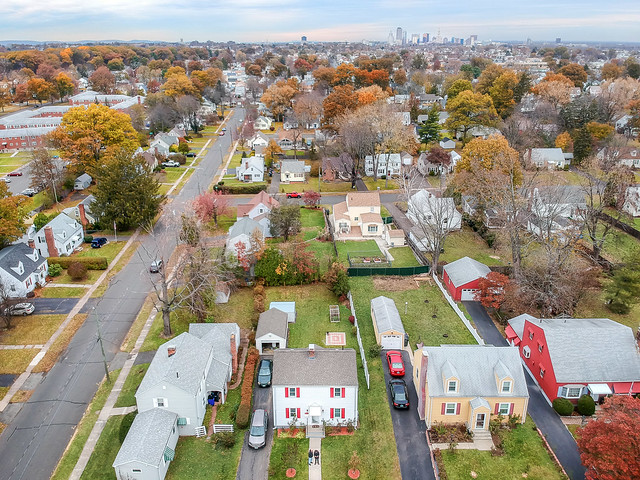You go where you belong, my father says to me,
ten years old, listening at bedtime to his story
about how he once was mugged in Brooklyn
in 1974, a small, polite Canadian
trying to buy gas and a Coke. Like here, he meant,
in this neighborhood, where crime is low, a 94%
white suburb in Connecticut,
where the poorest homes are decently lit
apartment complexes,
at night, only mildly rustling with ruckus
and weeds. Like here, where everyone
looks the same as everyone
else but me, my siblings.
Like here, in his pale arms holding
me as I cry stupidly over
what he had to endure—the horror
of losing your wallet!—
not knowing yet
that he and I have different
things to lose. That my body, brown against
these ivory sheets, washed and pressed
by my mother’s brown hands, is
not the same. That my grasp of the world
is yet too small for me to know where a girl
like me belongs. Where should I go?
I ask him. How will I know
when I’m there?
Diana Babineau is the managing editor of In These Times and a consulting editor for the Kenyon Review. She copyedits and proofreads books for the University of the West Indies Press, and holds a BA in English from Amherst College. She lives in Chicago.




